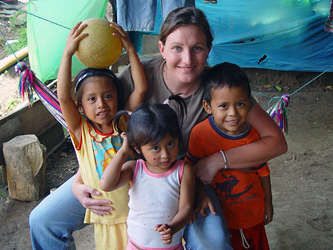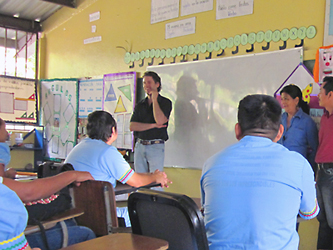Sociocultural Anthropology

Sociocultural anthropology is represented by faculty members who have done research in Oceania, East and Southeast Asia, the Americas, and Africa. Expertise among populations in the United States is particularly strong.
Most of the specializations within sociocultural anthropology are represented, but the subdiscipline's main strengths lie in applied anthropology, medical anthropology, political anthropology, and symbol systems. Faculty members have research interests in medical anthropology, in such areas as aging, contemporary and historical epidemiology, African medical systems, and health problems in developing nations. Applied anthropology is the primary focus of four faculty members, and studies by other sociocultural anthropologists often address policy and social problems. Such projects have included development studies in East Asia and the Pacific; asymmetric conflicts; the meat and poultry industry's impact on workers and communities in the High Plains and Upper South; analysis of community development, social movements, and human rights in Peruvian Amazonia; evaluation of the implications of natural resource management policies for traditional resource extractors in rural Florida; videography to support health care among Cabecar Indians in Costa Rica; and the cultural consequences of testing and other technologies in contemporary America. Many recipients of advanced degrees have gone on to careers in applied research and nonacademic practice. Four faculty members are interested in symbolic processes that endow the world and human existence with cultural meaning. Their research focuses on problems of method and theory, religion, art and other material aspects of culture, and language in culture.

Graduate students in sociocultural anthropology are introduced to the specializations and approaches represented by the faculty. They take course work in at least one geographical area and electives in areas of interest. Both the M.A. and the Ph.D. programs are tailored to the needs of individual students and stress intensive one-on-one discussions between students and their advisers.
Facilities and Student Support. Facilities include an outstanding ethnographic collection with the Spencer Museum of Art, a multimedia laboratory, and the Human Relations Area Files. Teaching and research assistantships are available.